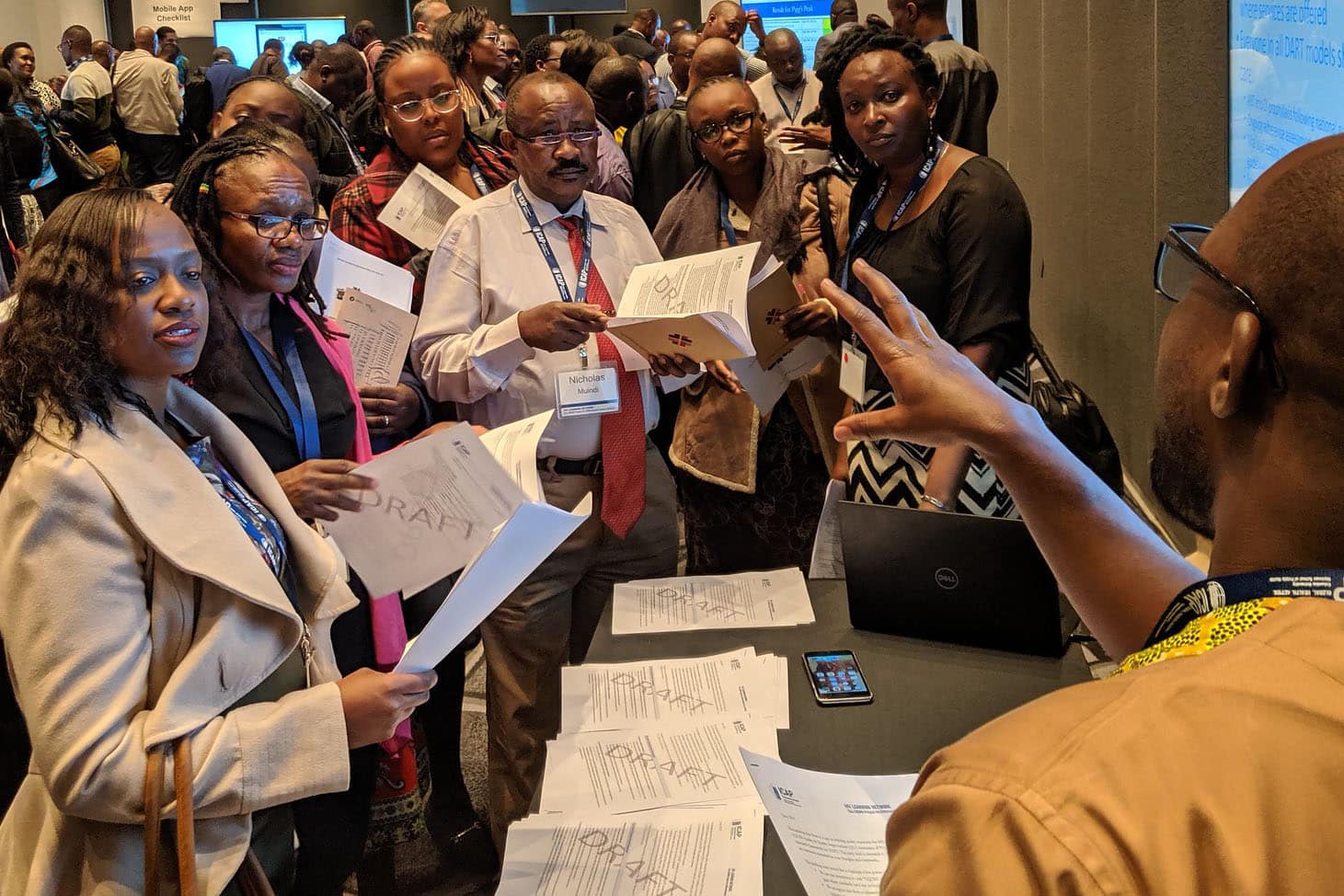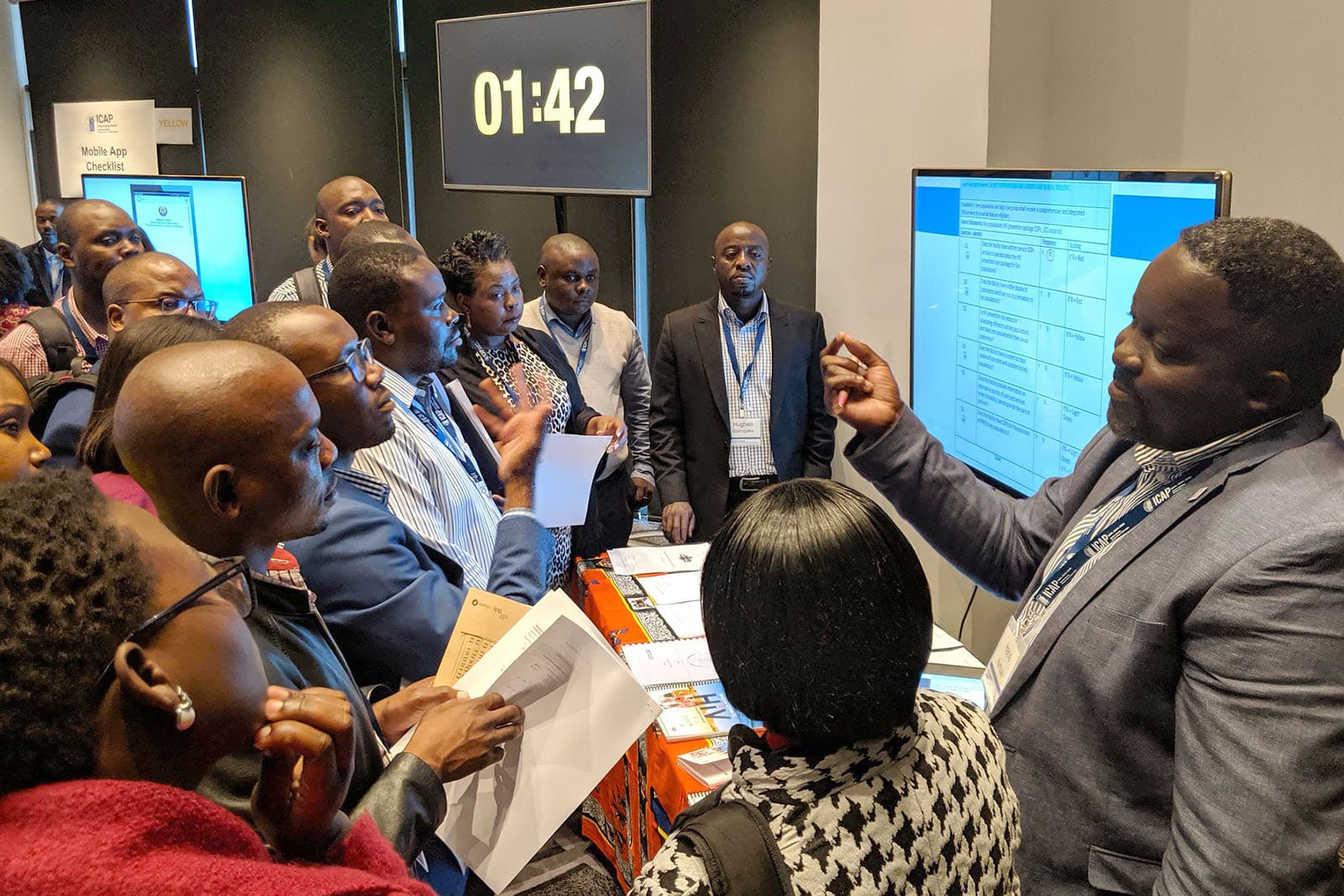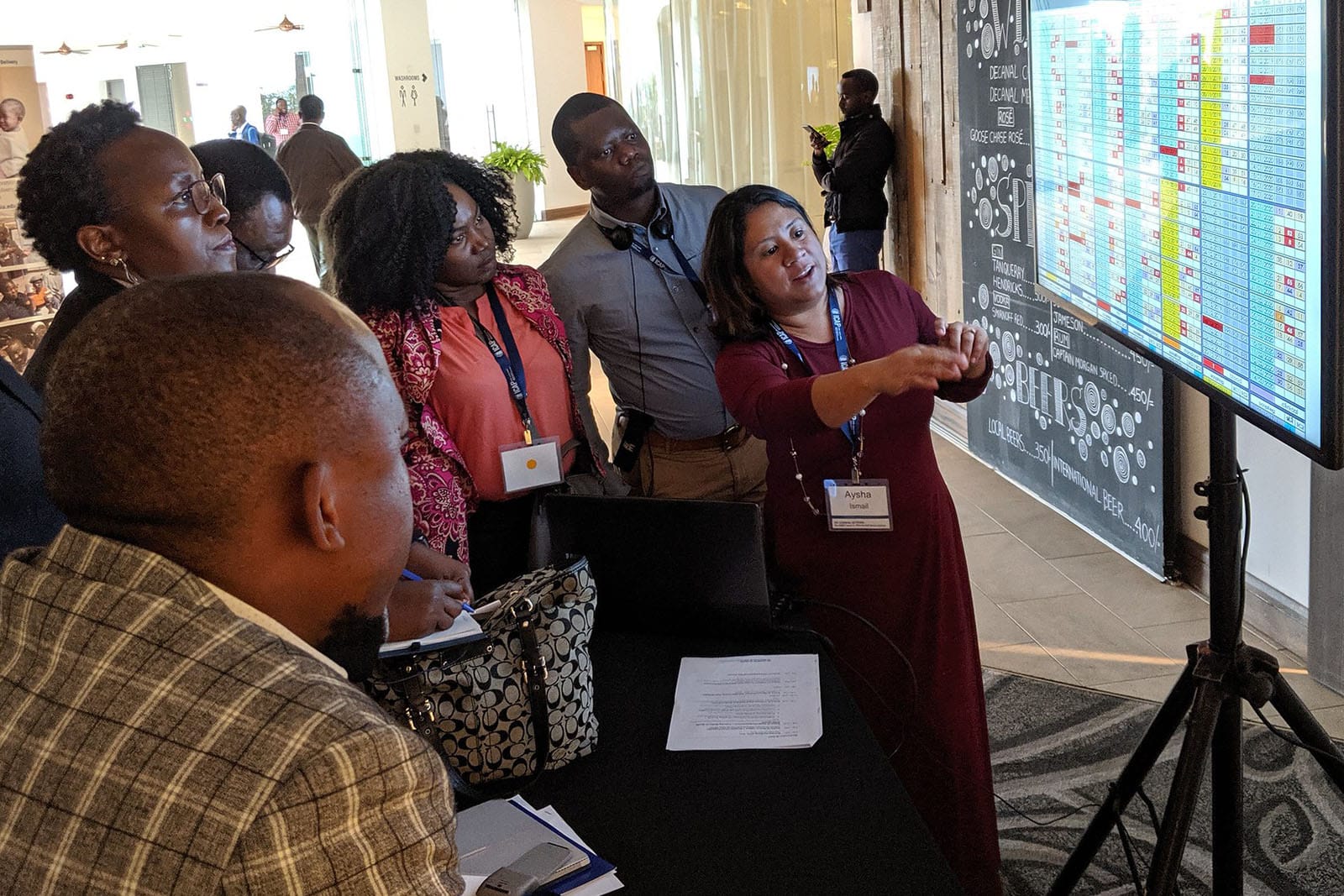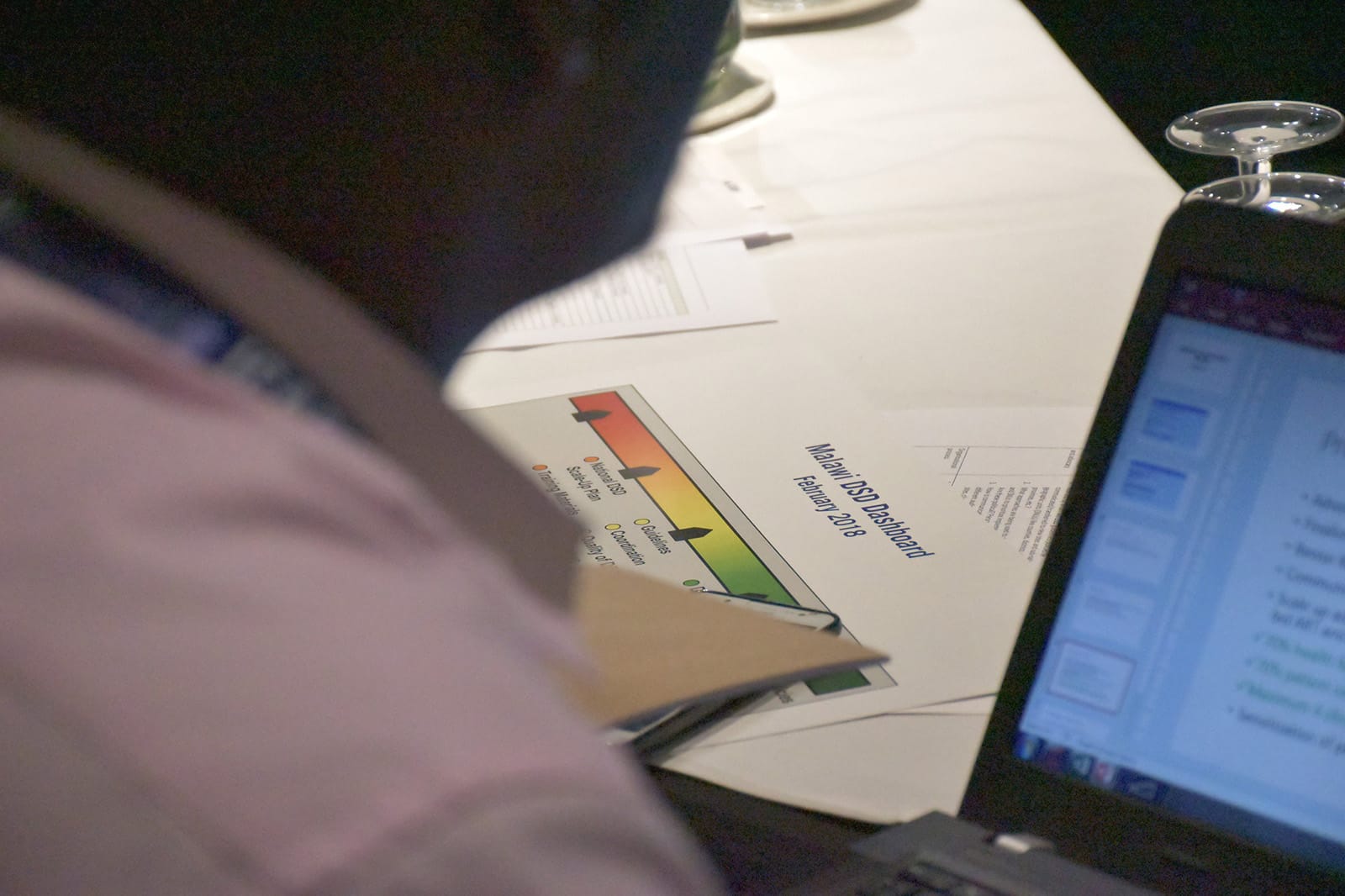Quality Management
CQUIN focuses on both differentiated service delivery (DSD) coverage and quality.
The CQUIN Capability Maturity Model (CMM) tracks DSD coverage in network countries, all of which have shown notable progress in expanding geographic coverage and the proportion of eligible people enrolled in differentiated ART (DART) models. The CMM also tracks quality – and most network countries have progressed more slowly in this domain, largely due to a lack of data about DSD program quality. However, programmatic experience highlights the need for close attention to DSD quality challenges, including imperfect use of DSD eligibility criteria; suboptimal utilization of viral load data; changes to program design that discourage enrollment; and lack of fidelity to DSD guidelines.
In response, CQUIN launched a community of practice focused on DSD-related quality and quality improvement, engaging network participants in a series of in-person workshops and an ongoing virtual collaboration.
In June 2019, CQUIN hosted an all-network workshop on DSD Quality and QI, and the network continues to explore each of the three elements of the classic Juran Triad” as they relate to DSD – quality planning, quality assurance, and quality improvement.
In 2020, the community of practice reacted to the lack of global and national quality standards for DSD by co-creating a DSD quality standards framework for less-intensive DART models.
In 2021, the CQUIN Quality Management Community of practice developed a quality assessment toolkit for DART models. The tool was pilot tested in three countries and is intended to serve as a complementary resource for stakeholders to assess and improve DART quality. Network countries are actively adapting the standards and assessment toolkit for their own local context.
Most recently, in April 2022, CQUIN hosted the second Quality Management workshop where network countries shared progress in their quality management journey, including showcasing examples of national DSD quality standards, quality assessment data, and quality improvement projects.
Additionally, the quality management, recipient of care and M&E community of practices have co-created a recipient of care satisfaction decision matrix and toolkit to provide network countries with best practices for assessing and improving on recipient of care satisfaction.

Planning
Quality planning asks: “What is the quality standard?” and establishes goals and targets for health system performance. While all CQUIN Network partner countries have national DSD policies and guidelines, and many have targets for DSD coverage, fewer have specific standards for DSD quality. The CQUIN Quality & QI community of practice has developed a DSD quality standards framework for less-intensive DSD treatment models and is working on relevant indicators for countries and programs to adapt to their local contexts.
Improvement
Quality improvement asks: “How can we continuously improve performance?” Key elements include identification of a quality challenge, root cause analysis, identification and prioritization of interventions, selection of indicators, and rapid, iterative tests of change. CQUIN has conducted a series of workshops and trainings on QI-for-DSD, and the Quality & QI community of practice continues to exchange updates, outcomes, and resources related to QI-for-DSD projects. ICAP’s CQUIN team will also continue to provide training and capacity-building related to QI-for-DSD in 2023.


Assurance
Quality assurance asks: “Are we meeting the standard?” and measures performance against targets. The CQUIN Quality and QI community of practice continues to explore different countries’ approaches to DSD-specific QA (including related indicators and data sources) and the extent to which their growing DSD programs meet quality standards. In 2021, the Quality Management community of practice designed a quality indicators and assessment tool for DART models. The tool was tested in three countries, and additional network countries are currently adapting the toolkit for their local context.
Quality Management Community of Practice

Launched in October 2018, the CoP focuses on building capacity for DSD-specific quality management, including the development of DSD-specific quality standards, indicators, and quality assurance (QA) tools, and exchanging resources to support quality improvement (QI) of DSD programs. The CoP enables network countries to contribute towards the scale-up of high-quality DSD programs by exchanging best practices related to DSD quality management; identifying opportunities to co-create resources, and working to strengthen networks of practitioners and policymakers to promote ongoing cross-country learning.
- 20 countries are actively engaged in the CoP
- Mr. Martin Msukwa, CQUIN Regional Advisor, is the technical lead, supported by Ms. Gillian Dougherty, Senior QI Advisor at ICAP New York, and Ms. Phephile Dlamini, Project Operations Coordinator from ICAP in Eswatini.
- In June 2019, CQUIN hosted an all-network workshop on DSD Quality and QI, and the network continues to explore each of the three elements of the classic “Juran Triad” as they relate to DSD – quality planning, quality assurance, and quality improvement.
- In 2020, the community of practice reacted to the lack of global and national quality standards for DSD by co-creating a DSD quality standards framework for less-intensive DART models; the English version is here and the French version is here.
- In 2021, the CQUIN Quality Management for DSD Programs community of practice developed a quality assessment toolkit for DART models. The tool was pilot tested in three countries and is intended to serve as a complementary resource for stakeholders to assess and improve DART quality. Network countries are actively adapting the standards and assessment toolkit for their own local context.
- Most recently, in April 2022, CQUIN hosted the second Quality Management workshop where network countries shared progress in their quality management journey, including showcasing examples of national DSD quality standards, quality assessment data, and quality improvement projects. Additionally, the quality management, recipient of care, and M&E community of practices have co-created a recipient of care satisfaction decision matrix and toolkit to provide network countries with best practices for assessing and improving on recipient of care satisfaction.

